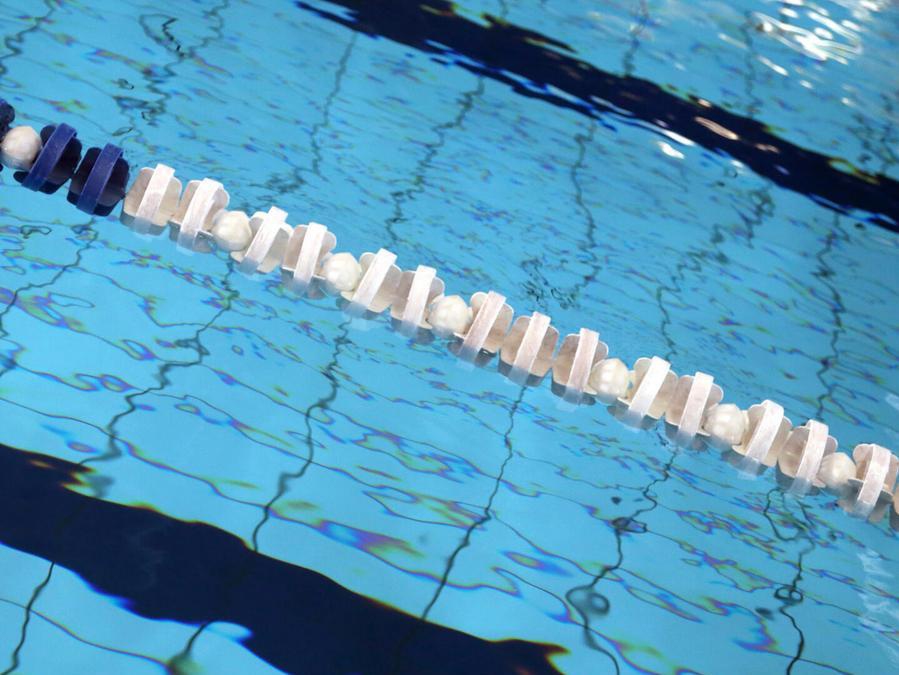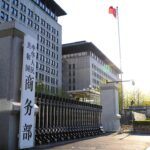The World Anti-Doping Agency (WADA) held a virtual extraordinary meeting on Friday, during which the organization’s founding President Dick Pound said he was “deeply disappointed and disgusted” by the deliberate lies and distortions from the United States Anti-Doping Agency (USADA) regarding a contamination case involving Chinese swimmers.
The meeting was convened to update board members on the 2021 case, and was open to the media. According to a WADA statement in April, WADA was notified in June 2021 of the decision by the China Anti-Doping Agency (CHINADA) to accept that the Chinese swimmers had tested positive in early 2021 for TMZ after inadvertently being exposed to the substance through contamination. However, despite WADA having issued a conclusion on the case, USADA brought it up again recently as the Paris 2024 Olympic Games approach.
During the meeting, WADA provided board members with a full outline of the work it has carried out on the case from the moment it became aware of the positive tests in 2021 to date, from every perspective including scientific testing, legal affairs, intelligence and investigations.
According to all available evidence, this was not a case of doping but of no-fault contamination, and WADA acted according to applicable processes and rules, making no attempt to cover up the case in any way.
WADA revealed at the meeting that the 23 Chinese athletes, tested positive in a 2021 tournament, provided approximately 1,700 doping control samples between 2018 and 2022, with certain athletes having been tested dozens of times per year.
Pound said the USADA’s accusations, including claims that WADA had swept doping cases in China under the rug, were bereft of any truth, with a single purpose “to deliberately damage the reputation of WADA and to lessen the worldwide trust that has been built up since WADA was created a quarter of a century ago to head up the international fight against doping in sport.”
“What is missing in USADA’s conduct is a willingness to work for solutions – just endless and biased criticism,” said Pound.
WADA clarified the case in late April after several US and Australian media outlets suddenly revived the old case which had already been concluded.
Observers pointed out that sports events in the US lack supervision from WADA, but the US is very enthusiastic about supervising doping outside the country.
WADA in its earlier statement said that the US, in recent years, has repeatedly accused China of covering up doping cases based on “unspecified source” without providing substantial evidence.
A sports commentator told the Global Times on Friday on condition of anonymity that Chinese swimmers have performed well in the sport that the US has long dominated along with Australia. The smear and slander tactics used by the US aim to not only distort public opinion but also disrupt athletes’ training and hurt morale, the commentator emphasized.
The US has been adept at spreading rumors or lies to frame the innocent, with a politically driven agenda, analysts said. One of the most well-known examples cited is the use of a test tube of washing powder to start the Iraq War. A more recent example is the fabrication of “forced labor” charges in China’s Xinjiang region in an attempt to crack down on industries and contain China’s development.
Unfortunately, the US’ hegemonic status in global media makes it very easy for the US to create lies and mislead the public, leading to the truth being overlooked and clarification being ignored, analysts said.
According to WADA procedures, it has now referred the matter to an independent prosecutor, Eric Cottier, who will conduct a review with the intention of issuing a report by the end of June, per the virtual meeting.
After the case was brought to the public by Western media in April, the China Anti-Doping Agency (CHINADA) condemned the media reports and USADA for smearing Chinese athletes and China’s anti-doping work, stating that they have violated ethics and laws by disclosing private information, seriously infringing on the legitimate rights and interests of athletes.
The agency reserves the right to take appropriate legal action, CHINADA said at the time.













